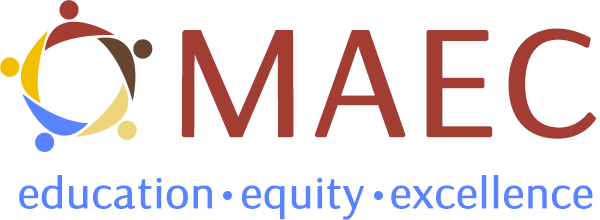Whole school transformation is a systemic and multifaceted approach to addressing the adaptive and technical barriers that lead to low academic performance, unsafe school climates, and low family, school, and community engagement in priority and focus schools. MAEC understands that each district and school is situated within a unique socio-political context that defines their needs, strengths, cultures, processes, and resources. We work with clients to conduct a comprehensive needs assessment and develop an action plan grounded in data, shared targets, and the leveraging of human capital, expertise, and resources to close achievement and opportunity gaps in schools.
Community Resource Mapping
MAEC uses a strengths-based approach for asset mapping, since often the best solutions come from within the communities in which our districts/schools reside. These key stakeholders include districts, schools, communities, and families all who are seeking to increase student achievement. To this end, MAEC conducts community walks and community resource mapping to identify potential partners and allies for effective and efficient delivery of services. This process includes attention to alignment between district and school needs and priorities so together partners can build the social and human capital that will help students and staff thrive.
Comprehensive Needs Assessment
Beginning with a disaggregated data analysis of student achievement, student discipline, and school climate, MAEC is able to effectively determine client strengths and areas of need. This collaborative inquiry approach enables MAEC to examine multiple sources of data. Using a culturally responsive and equity framework, further creates opportunities to develop operational action plans to tackle complex challenges that pose barriers to gains in student achievement.
Culturally Responsive Family, School, and Community Engagement
A family is a child’s first teacher. When families’ partner with schools and community organizations, children thrive. To produce the best results for students, MAEC builds the capacity of families, educators, schools, and community organizations to collaborate, exchange ideas, and develop and implement policies and action plans. We build on the collaborative strengths of families, educators, and community members so they can each contribute to the development and success of diverse students.
Culturally Responsive Leadership
Leaders set the tone and expectations of any organization. They do this by responding effectively to the diverse communities that they serve, being asset-focused, and proactive problem solvers. Culturally responsive leadership technical assistance provides a multi-dimensional framework that builds capacity of educators who are culturally informed and highly skilled in culturally responsive practice.
Culturally Responsive Pedagogy
Culturally responsive pedagogy is a method and practice of teaching in which educators and providers build on the assets that their students and families bring into the classroom. As the populations of our students grow more diverse, staff must be better prepared to respond to their needs. This requires a greater understanding and knowledge of their students’ culture, strengths, and socio-political contexts. With this practice, schools can become hubs of learning focused on the well being of the students and families being served.
Policy & Procedural Reviews
In educational systems, policies and procedures often inform practice. However, some policies or procedures may have unintended consequences when implemented that serve to further silo organizational efforts to close opportunity gaps. To address this challenge, MAEC provides state departments, districts, schools, and organizations with policy and procedural reviews to ensure they are equitable, effective, and comply with federal, state, and local laws and regulations.
Positive School Cultures and Climates
MAEC engages districts and schools in a review of school climate and disciplinary data in order to assess their strengths and areas of need. Students thrive when they are in schools that create: (1) Optimal conditions for learning; (2) Inclusive; (3) Honor the cultures of families and students; (4) Have common instructional and organizational targets; and (5) Create a strong culture of belonging. Transformative schools also adapt multi-tiered systems of support and interventions to proactively meet the non-academic needs of students and build their self-efficacy, academic confidence, resiliency, and leadership skills to increase ownership for their learning.

